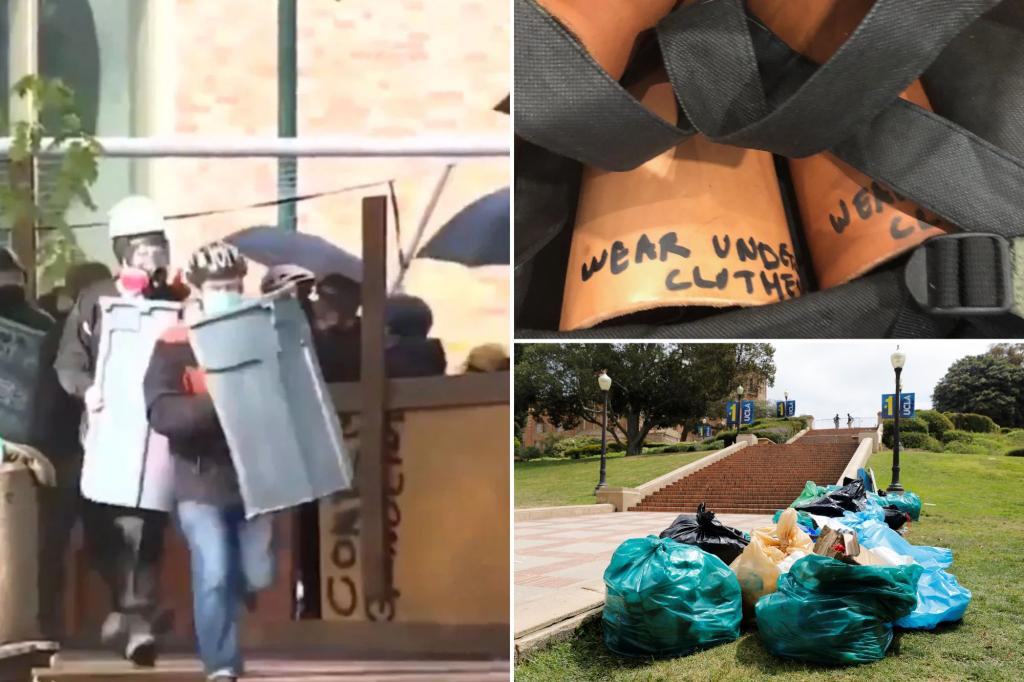Anti-Israel protesters at Portland State University (PSU) were met with police crackdown as they attempted to occupy the campus library. The protesters had been occupying the library for three days, prompting the campus closure. Police found makeshift weapons and armor inside the library, leading to the arrest of 12 people, with only four confirmed as students. Similar crackdowns were also seen at University of Southern California, Los Angeles (UCLA) where 132 demonstrators were arrested following a raid by police armed with smoke grenades, rubber bullets, and flashbangs.
The scenes at PSU and UCLA mirrored the chaos that unfolded at Columbia University in NYC, where the NYPD raided a building on campus to arrest over 100 protesters. At City College, more arrests were made resulting in about 280 arrests across both schools, with about 47 non-students among those arrested. However, not all encampments ended in chaos, as at Brown University, demonstrators and administrators agreed to disband the camp through the end of the school year in exchange for a meeting with the school’s governing body in May to discuss their demands for divestment from businesses associated with the Gaza conflict.
At the PSU protest, the protesters were seen attempting to flee from police, with some managing to escape while others were apprehended and taken into custody. Inside the library, police discovered an arsenal of weapons including buckets of ball bearings, paint-filled balloons, and cups of dish soap with instructions to throw them at the cops. The crackdown at PSU was part of a broader effort to dismantle encampments at colleges across the country, including at UCLA and Columbia University, where similar scenes of police intervention unfolded.
The crackdowns at PSU and UCLA followed days of protests and occupation that had disrupted campus activities. At UCLA, the encampment that had been set up around the campus perimeter refused to disperse, leading to the police raid with smoke grenades and rubber bullets. The aftermath of these crackdowns left behind trashed remains of the encampments, forcing workers to clean up heaps of garbage and structural debris. The scenes at these campuses reflected the growing tensions surrounding protests related to Israel and Gaza.
Despite the arrests and crackdowns, some protests, like the one at Brown University, ended in a more peaceful resolution. Demonstrators agreed to disband their camp in exchange for a meeting to discuss their demands for divestment. This agreement allowed for a more constructive dialogue between protesters and administrators, providing a potential path forward for addressing the underlying issues. Ultimately, the protests and crackdowns at various universities highlighted the ongoing debates and tensions surrounding the Israeli-Palestinian conflict and the role of universities in addressing these complex international issues.


